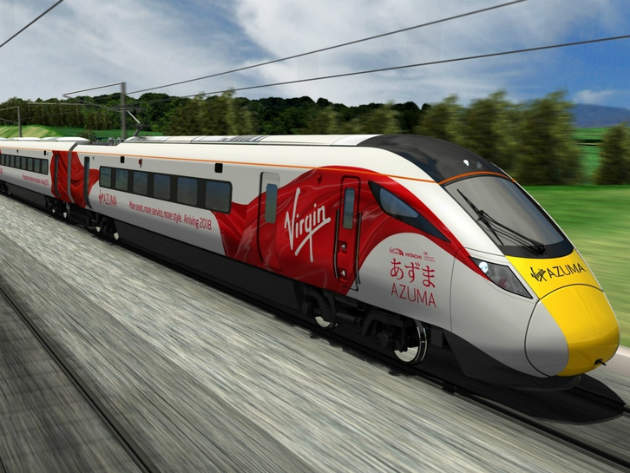
In March 2016, Virgin Trains launched the brand new Azuma trains in a buoyant ceremony at King’s Cross station in London, where company founder Sir Richard Branson promised that the new 65-strong fleet will “propel [the east coast main line] into the 21st century”.
The state-of-the-art Azuma trains, which translates to ’east’ in Japanese, are expected to begin operating at the end of 2018.
The contest for the 78 future train drivers brought the biggest recruitment drive on the east coast route since privatisation in the 1980s, and challenged people without any previous experience to apply.
In just one week, approximately 15,000 people applied for the available positions, equivalent to nearly 200 applications per available role. The candidates have since been whittled down and training began in January.
Over the course of this year, the future Azuma drivers will learn how to safely operate a faster, more modern and challenging train through a series of theoretical and practical modules, as well as with the help of a state-of-the-art Virgin Train simulator.
A new standard in train design

The new fleet of trains is being built in the UK, at Hitachi’s rail manufacturing facility in Newton Aycliffe, County Durham.
The Azuma model boasts faster acceleration than its older counterparts – one minute quicker from 0mph to 125mph – which will reduce east coast journeys by up to 22 minutes.
While the initial maximum speed will be 125mph, Virgin Trains announced the creation of a cross-industry working group, which will include Network Rail, to investigate the potential for 140mph trains to operate on the London to Scotland route.
A swifter service will mean new destinations being added across the route. Direct journeys to Middlesbrough and Huddersfield will now become possible, while existing routes, such as London to Edinburgh, will be shortened to four hours, and London to Leeds to just two hours.
The Azuma also promises to be lighter and more energy-efficient, “making them some of the most environmentally friendly in the UK”, according to Virgin Trains.
They will be the first to start operating under the Intercity Express Programme (IEP), an initiative initiated by the Department for Transport (DfT) that aims to replace the current fleet on the east and west coast main lines.
The new fleet will bring an additional 12,200 seats to the route, serving an expanded travel timetable, and promises to increase capacity into King’s Cross by 28% during peak times.
For the first time in the UK, carriages will also include mood-lighting, as well as ‘faster and free’ WiFi, an improved traffic-light reservation system, power sockets for every seat and ergonomically designed seats in both first and standard class.
Fierce competition for future drivers of UK rail

When the recruitment programme was announced in October last year, over 15,000 applications poured in.
Successful applicants were expected to relocate near one of five depots serving the route, in Edinburgh, Newcastle, Leeds, Doncaster or London King’s Cross. Once on the job, drivers can expect to earn around £57,000, industry sources told The Guardian.
After the first round of the selection process, the candidates had gone through a rigorous one-day assessment, where they faced a range of exercises and tasks.
Throughout the year-long training programme, the trainees will take part in a range of classroom-based and practical tasks at different locations on the east coast route, including modules such as track safety, understanding operational route risks and emergency situations, and getting to know the train they will be driving.
The future drivers will also have access to a Virgin Trains’ desk simulator especially created to replicate the Azuma cabin. This will help familiarise them with train-handling and the inside of the cab in a safe and secure environment, before they take charge of some of the most cutting-edge trains on the UK network.



